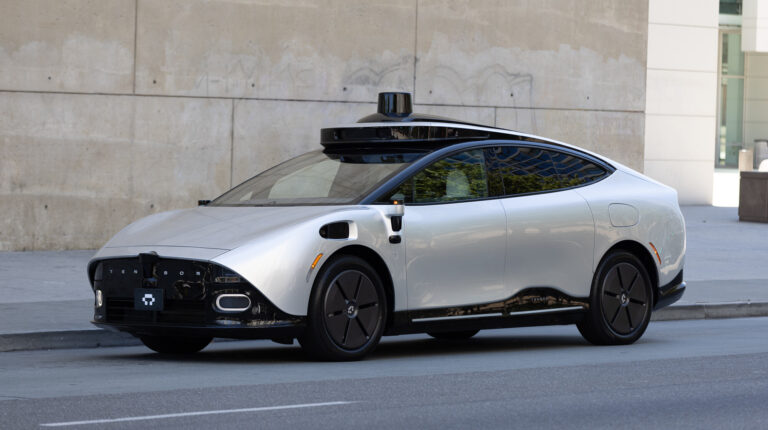Tensor, an agentic AI company, has unveiled what it describes as “the world’s first volume-produced, consumer-ready autonomous vehicle, designed from the ground up for private ownership at scale”.
Tensor says it has engineered the vehicle and system from the ground up, prioritizing AI perception, safety and reliability. With over 100 integrated sensors, the company prioritized visibility to ensure safety. Radar-transparent materials, unobstructed lidar sight lines and a low hood profile enable this philosophy. Tensor is powered by a vertically integrated Level 4 autonomy stack. Its sensor suite includes 37 cameras, five lidars, 11 radars, 22 microphones, 10 ultrasonic sensors, three IMUs, GNSS, 16 collision detectors, eight water-level detectors, four tire-pressure sensors, one smoke detector and triple-channel 5G.
At the core is the company’s advanced AI, built on the Tensor Foundation Model. Unlike conventional rule-based approaches, this model is data driven, learning perception, prediction and planning from vast real-world and simulated datasets. Based on transformer architecture and advanced sensor fusion, it navigates challenging conditions. Tensor’s dual-system AI mirrors human cognition: System 1 delivers fast, reflexive responses through imitation learning from expert drivers; System 2 uses a multimodal visual language model to reason through rare and complex edge cases. The system has been trained on proprietary and internet-scale visual data.
A multimodal large language model (LLM), embedded within an agentic framework, also continuously processes data from in-cabin cameras, microphones and other sensors for perception, using the LLM for advanced reasoning, decision-making and tool use.
At the heart of Tensor’s design is an advanced electrical and electronic architecture that builds in redundancy across power, communications and control systems. This approach is designed to make sure the vehicle remains operational even in the event of a failure.
Tensor’s robocar also features intelligent sensor-cleaning systems with dedicated wipers and nozzles, self-diagnosis, autonomous parking, charging and protective sensor covers when idle. It also performs startup checks, manages maintenance and updates over the air.
Tensor says it meets automotive standards, including FMVSS, IIHS Top Safety Pick+ and US NCAP, along with rigorous European and GCC standards.
The robocar will be available in select global markets in the US, Europe and the UAE. Delivery is scheduled for the second half of 2026.
“When the world shifts, how will you move?” said Amy Luca, chief marketing officer at Tensor. “We are building a world where individuals own their personal AGI [artificial general intelligence] agents, enhancing freedom, privacy and autonomy. With Tensor, we’re introducing the world’s first personal robocar, ushering in the era of AI-defined vehicles. This isn’t a car as we know it. It’s an embodied personal agent that moves you. It’s time to own your autonomy.”
In related news, Toyota has selected Hesai Technology’s long-range automotive lidar ATX for its upcoming Chinese energy model, scheduled to enter mass production in 2026


